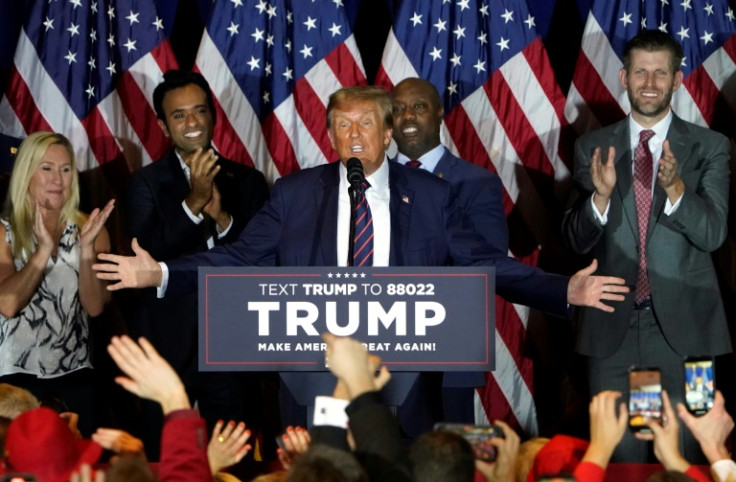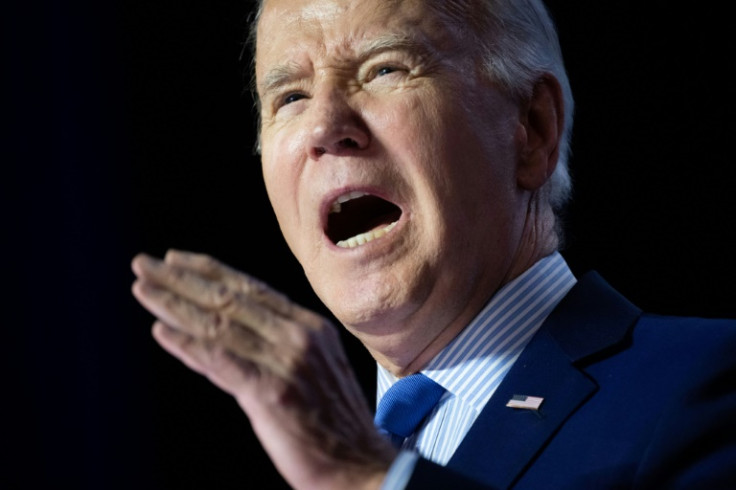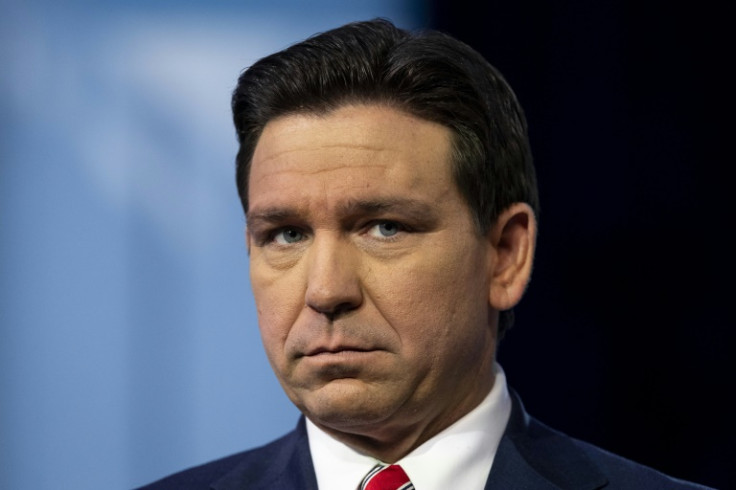
Donald Trump is steamrolling his way to the Republican presidential nomination with unprecedented speed, but the primaries have also underlined vulnerabilities when it comes to taking back the White House.
Hidden in his double-digit victories over last surviving rival Nikki Haley in Iowa and New Hampshire are warning signs over his standing with the independents and moderate Republicans he'll need to prevail against President Joe Biden in November.
Almost half of voters in New Hampshire were registered as independents -- a group that closely reflects sentiment in the swing states typically deciding close elections. And they broke two-to-one for the more moderate Haley over Trump.
Another exit poll red flag showed a third of Republican primary voters in New Hampshire saying they wouldn't support Trump in November at all.
There were similar statistics in Iowa's nominating contest last week. Trump won easily, but polling from the Des Moines Register showed that almost half of Haley's supporters would back Biden over Trump.
"Many framed Trump's Iowa performance as dominant but I disagree," said Kenneth Miller, a political science professor at the University of Nevada Las Vegas.
"He started in the position of clear leader and has campaigned for two years without primary rivals uttering an unkind word about him. Those are about the most favorable primary conditions one could imagine, but he could barely crack 50 percent of caucus-goers in Iowa."
In Iowa, Trump faced two other major candidates. Yet in New Hampshire, he was only up against Haley after Florida governor Ron DeSantis dropped out and here he fared little better than in Iowa, winning 55 percent.
The potential weakness of Trump once out of his hard-right Republican bubble has not gone unnoticed by his rivals.
DeSantis endorsed Trump as he withdrew on Sunday, but he says that old-school Republicans won't be backing him against Biden.
"When I have people come up to me who voted for Reagan in '76 and have been conservative their whole life say that they don't want to vote for Trump again, that's a problem," DeSantis said in a radio interview after dropping out.
The failure of Trump to attract more moderate Republicans has already resulted in a string of electoral defeats over the last few years.
Not only did he lose his own reelection to Biden in 2020, but the party he dominates lost both chambers of Congress during his one term, as well as significant setbacks in the last midterm legislative elections held in 2022.
Trump shows no sign of changing strategy. He thrills his hardcore base with campaign speeches about voter fraud, economic collapse and illegal immigration destroying the nation.
His furious New Hampshire victory speech was littered with scorched-earth rhetoric, insults, swearing, and conspiracy theories, including his lie -- unprecedented in US history -- that he didn't lose the 2020 election.
That's not the only baggage weighing down the maverick populist. He will head into the general election facing 91 felony charges and at least one of his four trials expected to start before polling day.
It's not out of the question that Trump could stand for election with a criminal conviction -- or even a prison sentence hanging over his head.
Exit polls conducted during the opening two Republican nomination contests asked voters if they viewed Trump as fit for the presidency if he is convicted of a crime. Just over a third of Iowans and nearly half of those in New Hampshire said no.
In other words, even if Trump has a lot of supporters ready to forgive anything, he also has many who will not. That's going to hurt him.









